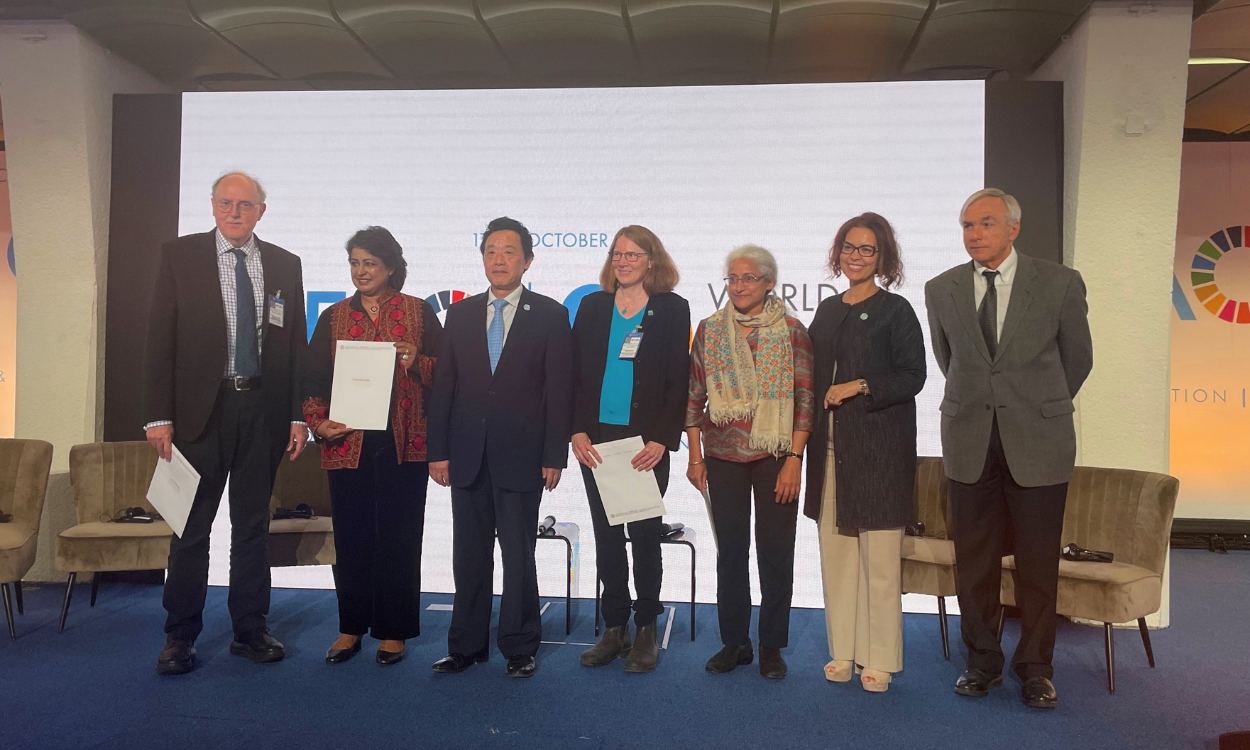SEED FUNDING JOINT PROGRAMMES
Cambodia
Transforming Cambodia’s food systems to become more sustainable, inclusive, and resilient


PROJECT TITLE | Transforming Cambodia’s food systems to become more sustainable, inclusive, and resilient |
| Context | Cambodia’s National Pathway is the outcome of an extensive consultation process, involving more than 2,000 people throughout thirty dialogues, which identifies four priority areas, namely healthy diets for all, empowerment of youth, women and vulnerable groups, resilient livelihoods and food systems, inclusive governance. Acknowledging the risks posed by climate change to hard won development gains and as a co-founder of the Alliance of Champions for Food Systems Transformation, Cambodia is prioritizing the integration of climate change and food systems transformation, building coherence across the agendas. The Council for Agricultural and Rural Development, the government agency coordinating food security and nutrition initiatives in Cambodia, is leading collaborative efforts to translate national aspirations into concrete action. |
| PUNOs | FAO, WFP, UNICEF |
| Contribution to SDGs | SDG 2 Zero Hunger |
| Contribution to other SDG transitions | Climate, biodiversity, pollution |
| Duration | August 2024 – July 2025 |
| Expected financial leverage | $3 million |
| Alignment with SG Call to Action | Policy integration; Food systems governance; Inclusive and participatory design; Private sector engagement |
| Outcomes | The Joint Programme fosters an enabling environment for food systems transformation by enhancing national capacities and policy frameworks, identifying opportunities to unlock financial streams, and strengthening advocacy efforts for food systems transformation. The JP provides crucial support to the alignment of the climate and food agendas, accelerating progress towards resilient, sustainable and inclusive food systems. |
| Partners | Council for Agricultural and Rural Development (CARD) will be the main government counterpart and will coordinate the government activities in conjunction with other key Ministries, including:
|
| Outputs |
|
Launch of the Hub’s Scientific Advisory Committee
The new Scientific Advisory Committee (SAC) supporting the Hub is officially launched at the 2022 World Food Forum in Rome, Italy.

The FAO Director-General offers appointment letters to scientists from the Hub's new Scientific Advisory Committee.
Science and innovation play a crucial role in accelerating transformations for healthier, more sustainable and resilient food systems. To fill this role, a new Scientific Advisory Committee (SAC) was recently established to work with the UN Food Systems Coordination Hub in support of country action.
The SAC was officially launched at the World Food Forum on 8 November 2022 at FAO Headquarters in Rome, Italy. Members of the committee received appointment letters from FAO Director-General QU Dongyu and later participated in a panel discussion with FAO Chief Scientist Ismahane Elouafi on “The power of science on transforming food systems.” Read a summary of the event from Hub Director, Stefanos Fotiou.
What is the role of the Scientific Advisory Committee (SAC)?
The SAC comprises 33 eminent scientists from around the world, dedicated to addressing systemic challenges that exist in transformation pathways through credible, evidence-based and science-driven solutions. Members were selected to represent the entire science ecosystem, including natural, social, economic and applied sciences, as well as sustainability science through an interdisciplinary and transdisciplinary approach.
Together, they will act as a broker of science and evidence, bringing forth their combined expertise to guide and support countries in the implementation of their national pathways. Support will be provided in the following ways:
- Enhancing the food systems knowledge and evidence base;
- Identifying scientific priority areas and emerging issues;
- Strengthening science- and evidence-based decision-making processes;
- Engaging the larger global scientific community and facilitating local or regional scientific networks;
- Improving science-based evidence communication; and
- Scaling up science-policy interface for informed policy-making.
Addressing the immense challenges facing our global food system will require an integrated and multidisciplinary approach. By harnessing evidence and expertise from across the scientific community, the SAC can help shift humanity towards healthier and more sustainable food systems.
